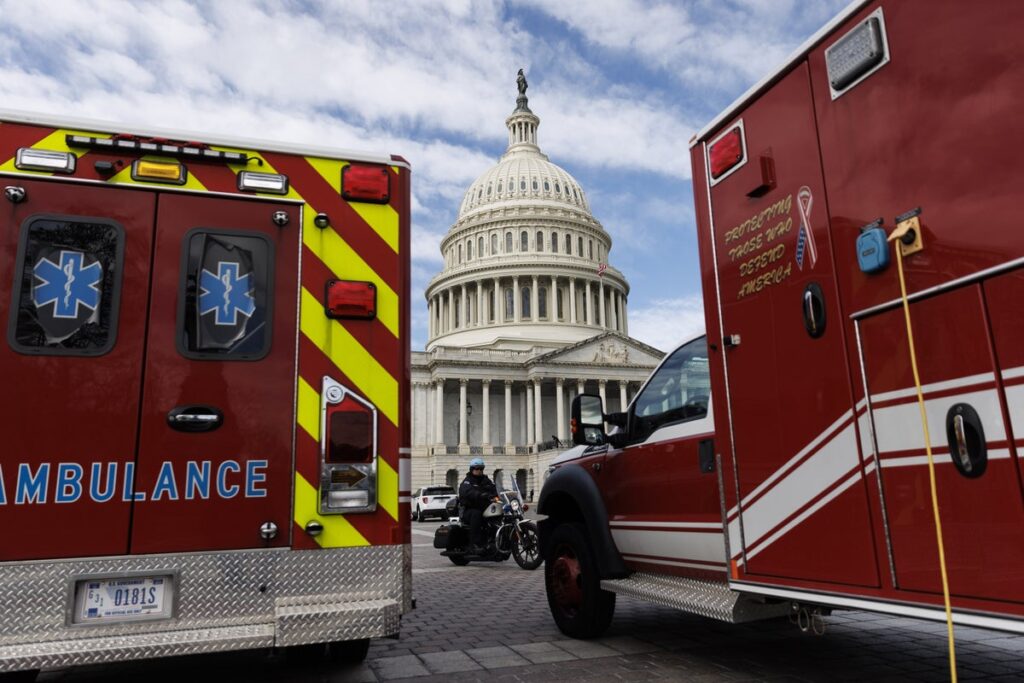Editor’s Note (7/3/25): The House of Representatives passed the budget bill in a 218–214 vote today. It will now go to President Donald Trump for signature.
Money can’t necessarily buy an individual good health—but for a society, it can.
On July 3 the House of Representatives will vote on the Trump administration’s new budget bill, which incorporates massive cuts to Medicaid, the state-federal health insurance program that serves more than 70 million low-income people. The bill, which passed the Senate on July 1, would cut $930 billion from Medicaid, Medicare and Affordable Care Act funding combined over 10 years, with more than 11 million people losing coverage by 2034. Experts have calculated that, taken together, the cuts will lead to more than 51,000 additional deaths per year by decreasing people’s access to health care.
On supporting science journalism
If you’re enjoying this article, consider supporting our award-winning journalism by subscribing. By purchasing a subscription you are helping to ensure the future of impactful stories about the discoveries and ideas shaping our world today.
Experts say the evidence shows that gutting Medicaid will have dramatic effects on health far beyond people enrolled today—some of whom may not even realize they use Medicaid because the program goes by different names in different states. Even those with private insurance will be affected.
“When you slash $1 trillion from the health care system, you can’t expect it not to have far-reaching harms,” says Megan Cole Brahim, a health policy researcher at Boston University. “It will really affect everyone, including people who aren’t enrolled in Medicaid.”
The bill includes two main Medicaid-related provisions. One increases the requirements people must meet to qualify for and remain on Medicaid: This would drive down the total number of people who receive benefits, Cole Brahim says, leaving more people without coverage. The second provision reduces the amount of money the federal government sends to the states to fund Medicaid coverage. This will cause great variability in how different states handle the cuts, she notes, because each state will have authority to make its own choices about whether to try to scrounge up the funding from other sources to close the gap and maintain Medicaid access.
Medicaid “covers about one in five people, and the majority of people in the United States will have had Medicaid at some point in their life.” —Megan Cole Brahim, health policy researcher, Boston University
Medicaid’s Overall Health Impacts
Cuts to Medicaid at the scale proposed in the House and Senate bills are unprecedented, Cole Brahim says, but scientists still have plenty of data to work from to predict the effects of such a massive cut. Researchers have tracked differences in health outcomes in states where Medicaid was expanded, particularly after the passage of the 2010 Affordable Care Act. That legislation gave states the option of extending Medicaid coverage to more people, up to those with an income of 138 percent of the federal poverty level, with federal support. So far, 40 states and Washington, D.C., have opted for expansion—and researchers have monitored health outcomes over time in those states compared with states that did not.
“Medicaid expansion was really a natural experiment,” says Brian Lee, a transplant hepatologist at the University of Southern California, who was co-author of a 2022 study in the Lancet that evaluated death rates in conjunction with Medicaid expansion across the U.S. When Medicaid coverage was offered to more people, overall death rates fell by nearly 12 per 100,000 adults per year on average. Where states were home to more women or more Black people, the decline in death rate was larger.
And Lee notes that the 2022 findings are just the bird’s-eye view of the way Medicaid access shapes people’s health. For example, studies have found that more people get diagnosed with chronic conditions such as diabetes and cardiovascular disease in Medicaid expansion states. Earlier diagnosis permits earlier treatment, which, logically, would reduce mortality rates over the course of decades.
“Medicaid expansion, in relative terms, is pretty new,” Lee says; the earliest states began implementing the program in 2014. “A lot of people think that, actually, the best benefits are to come” —or at least, they thought that they were to come.
Medicaid for Specific Needs
The new policy changes won’t just affect the people who lose access to Medicaid in the short term. “This isn’t a small program for a fraction of our population,” Cole Brahim says. “It covers about one in five people, and the majority of people in the United States will have had Medicaid at some point in their life.”
One key area in which Medicaid is crucial is older adult health services and other long-term support, including both home-based care and residential facilities, says Jasmine Travers Altizer, a researcher at New York University who studies aging. Two out of three people in the U.S. will require some form of long-term health services at some point in their life, she says.
Therapists assist an older man with therapy in the extended care facility at Valley Health Hampshire Memorial Hospital on June 17, 2025 in Romney, WV.
Ricky Carioti/The Washington Post via Getty Images
Even after people reach the age of 65, Medicare—a companion federally run insurance program for older adults—only covers nursing home and daily home health care services for 100 days, she notes. Many people don’t have independent long-term care coverage, which can cost thousands of dollars a year in premiums, leaving them with no real alternative to Medicaid. And when people can’t access proper medical care, they often need to rely on relatives for support, including full-time care—which comes with its own economic consequences for families and society at large.
Our youngest populations also depend on Medicaid, Cole Brahim says. More than two in five births are paid for by the service—a proportion that rises to more than half for Black and Hispanic births.
And although proponents of the Trump administration’s Medicaid cuts say that these changes wouldn’t affect pregnant people and kids, Cole Brahim notes that they would absolutely prevent some people from having coverage before pregnancy. “Making sure people are connected to care before they become pregnant is really critical for maximizing health outcomes, both for the mom and the baby,” she says.

ER Productions Limited/Getty Images
Medicaid Cuts Lead to Provider Shortages
All three experts emphasize a universal risk to Medicaid cuts: the reduction of health care facilities and personnel. Federal Medicaid funds are used to directly cover care of individuals on Medicaid, but this money indirectly keeps practitioners’ and hospitals’ doors open.
The steep cuts to federal funding will ultimately mean doctors and hospitals have more trouble making ends meet. As facilities begin to close, people in affected communities—regardless of their insurance provider—will face longer wait times for appointments and longer travel times to facilities that are still in operation. People in more rural communities, which are already underserved, may lose care access entirely, even while remaining insured.
Cole Brahim is particularly worried that obstetric and pediatric care will see more closures, noting that these departments are often less profitable because insurance providers already reimburse these services at lower rates, she says.
Travers Altizer is also concerned about the cuts’ effects on nursing homes, which are in crisis as well. In one recent survey of nursing home providers, 27 percent said they would have to close their facilities if Medicaid cuts occurred. Even more—58 percent—said they would need to reduce current staffing; 44 percent they would slow new hires. For Travers Altizer, those possibilities mark a return to the early days of COVID, when staffing shortages left some nursing home residents unable to get out of bed or otherwise meet basic needs.
She also notes that people whose lose Medicaid coverage because of cuts will still need to seek care; they’ll just do it in different ways—ways that are ultimately more expensive overall. Rather than primary care visits, people will lean on emergency rooms. Without skilled medical support, people will rely on friends and family. Without federal money, people will continue turning to online fundraising platforms such as GoFundMe at ever increasing rates.
“There’s this big idea that we need to cut Medicaid [because] we need to save money, and Medicaid is this big federal government program,” Travers Altizer says. “But taking away this support won’t save money; it’s going to shift costs.”


